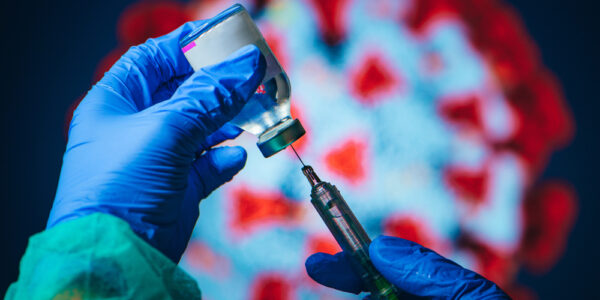The vaccine has improved neutralizing neutralizing antibodies when injected into mice against the peak-multiple protein, that coronaviruses use to lock on healthy cells, including an associated with B.1.351 that has been identified. For the first time in South Africa.
Scientists from the University of North Carolina Gillings School of Global Public Health have been published with a new major relief in the environment of the growing concerns of Delta and Delta more coronavirus variants. They have developed a hybrid vaccine, being nicknamed as “super vaccine”, which should prevent infections from future coronavirus variants.
The vaccine effectively generated neutralizing antibodies, when injected into mice, against the multiple picture protein, that coronaviruses use to lock on healthy cells, including an associated with B.1.351 which has been identified for the first time In South Africa, said scientists.
The researchers added that the universal vaccine protected from protected mice not only against Covid-19, but also other group coronaviruses 2b. He even triggered the immune system to combat a dangerous variant of Covid. They designed the vaccine to protect the current coronavirus of SARS-COV-2 and a group of coronaviruses likely to transmit animals to humans.
“Our conclusions seem bright for the future because they suggest that we can design more universal coronavirus vaccines to viruses proactively against the viruses that we know may come out of human beings,” said the doctorate, a researcher Postdoctoral at Gillings School. “With this strategy, maybe we can prevent a SARS-COV-3,” he added.
In the vast family of different coronaviruses, Sarbecoviruses is also called “group 2b”. Sarbeciruses are a priority for virologists after two outbreak coronaviruses – SARS and COVID-19 – over the last two decades.
“The vaccine has the potential to prevent epidemics when used as a new variant is detected,” said Ralph Baric, PhD, epidemiologist at Gillings School and Professor of Immunology and Microbiology at the SCAN School of Physician.
Additional tests could also lead to human tests next year. The paper includes mouse data infected with SARS-VOCs and associated coronaviruses. The vaccine was noted to prevent both infection and pulmonary damage in mice.
The conclusions of the study were published in the “Science” journal by major authors Martinez and a Hanna H. Gray Cherch at the Howard Hughes Medical Institute with Baric.
The most leaders worked with a team of UNC-Chapel Hill scientists, the Duke University Medicine School and the University of Pennsylvania Perelman School of Medicine.
According to Baric, researchers also swiveled to examine a second-generation vaccine after testing the effectiveness of the first generation of CVIV-19 vaccines.
The vaccine development approach has begun to be similar to the Pfizer and Modern Current Vaccine, that is, mRNA. However, instead of including the mRNA code for a single virus, researchers welded a mRNA set of several coronaviruses.
The study was supported by the National Institute of Allergy and Infectious Diseases to National Institutes of Health and Collaboration of North Carolina Policy, with funding from the North Carolina General Assembly.



